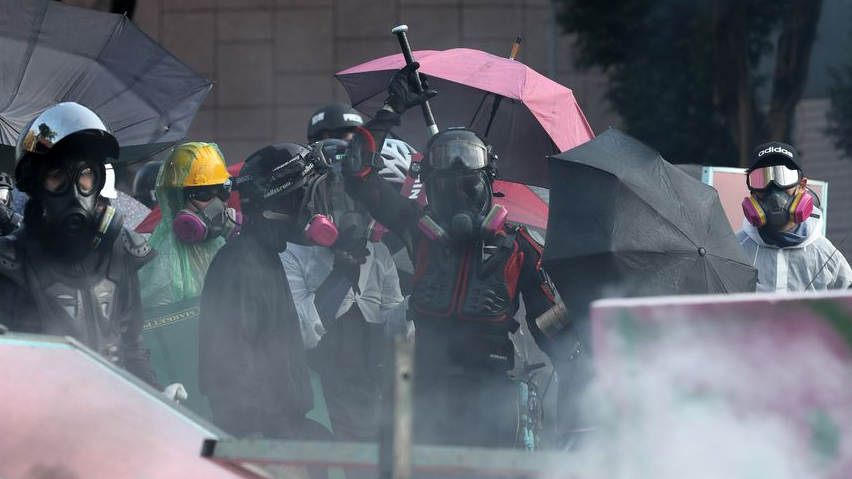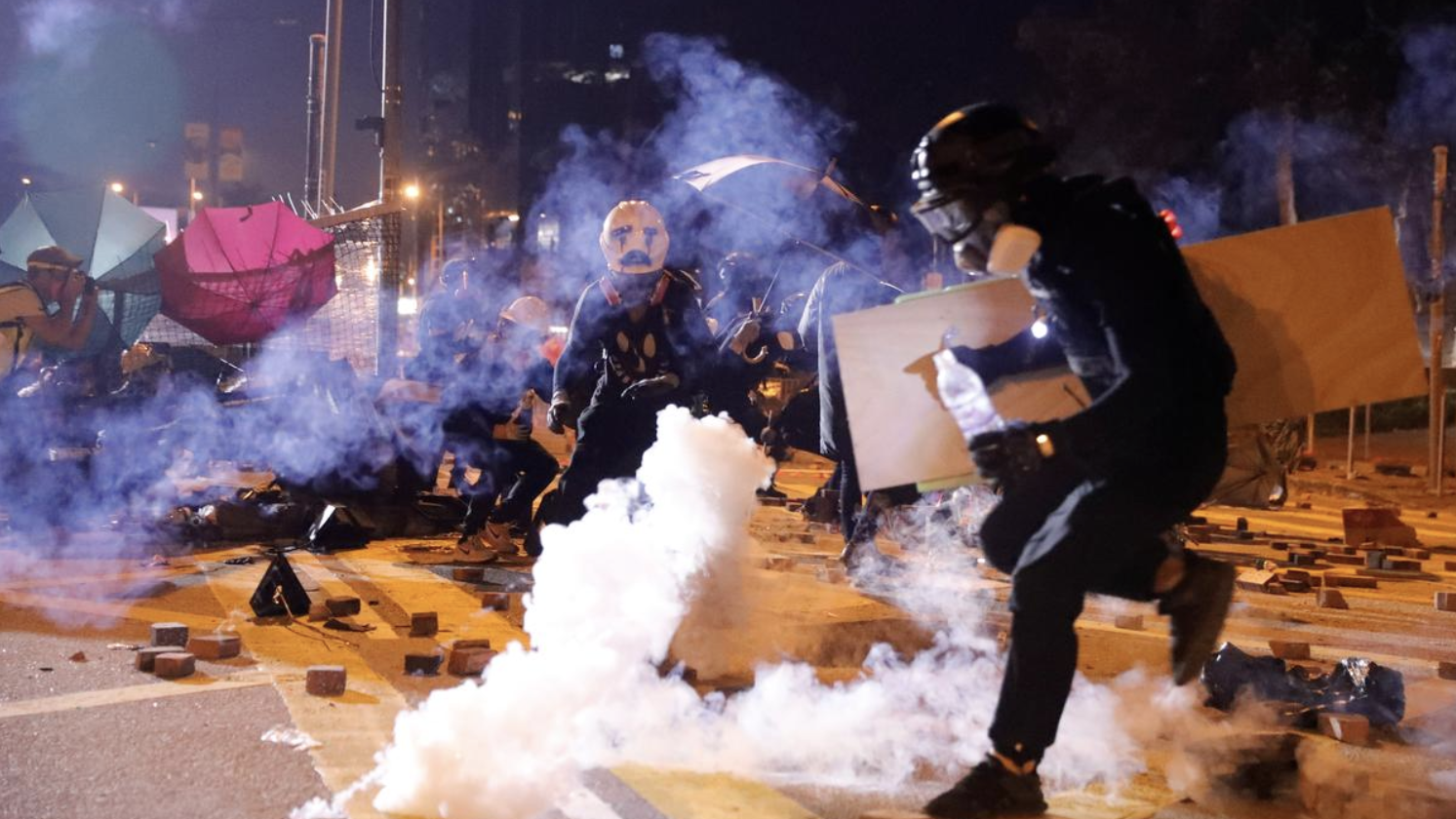
A rioter draws out his weapon in a standoff with police outside of Hong Kong Polytechnic University in Hong Kong, China, November 17, 2019. /Xinhua Photo
A rioter draws out his weapon in a standoff with police outside of Hong Kong Polytechnic University in Hong Kong, China, November 17, 2019. /Xinhua Photo
Editor's Note: Liu Jianxi is an opinion editor with CGTN Digital. The article reflects the author's opinions and not necessarily the views of CGTN.
How to distinguish between "pro-democracy activists" and "violent mobs"? For the United States, the answer depends on whether their movement suits its political gains. While people are labelled as "separatists" for organizing a peaceful march in support of Catalonia's independence, Hong Kong rioters were glorified as "heroic fighters for freedom" for paralyzing the city's public transportation system, occupying universities, setting a man who tried to stop vandalism on fire, and killing an innocent 70-year-old street cleaner.
The U.S. is wantonly supporting Hong Kong violence by not only calling rioters "pro-democracy activists" but also taking concrete legal actions. On Tuesday, the Senate unanimously passed the Hong Kong Human Rights and Democracy Act," under which Washington would certify whether the city is autonomous enough to justify its special trade status on a yearly basis.
This is typical long-arm jurisdiction and blatant inference in China's domestic affairs. But again, the U.S. is mixing the truth with falsehood by embellishing the bill as part of Washington's lofty cause of improving human rights conditions. The logic behind is simple: Sinophobia is an easy card to play in accumulating political assets and the ongoing turmoil in Hong Kong is a chess piece that cannot be wasted in containing the Chinese mainland.
The bill, still waiting to be signed into law by U.S. President Donald Trump, has nothing to do with democracy, but is all about politics. "Anti-China hawks including Republican Senator Marco Rubio have played a large role in the Congressional passage of the bill. Their ultimate purpose is to mess up Hong Kong," Gu Minkang, vice chairman of Hong Kong Basic Law Education Associate, told CGTN.
While American politicians could be bombarded with heavy criticism at home and abroad for messing up U.S. allies, stirring up trouble in countries on the U.S. hit list including China and Bolivia helps them woo more political support in Congress, which has a tradition of prioritizing political correctness over other agendas.

Rioters outside the Hong Kong Polytechnic University (PolyU) in the Hong Kong Special Administrative Region, China, November 16, 2019. /Photo via Reuters
Rioters outside the Hong Kong Polytechnic University (PolyU) in the Hong Kong Special Administrative Region, China, November 16, 2019. /Photo via Reuters
It is worth noting that the bill, if made into law, would not only dampen Hong Kong's economic prospect and the city's reputation as the world's financial hub, but also bring tremendous losses to American enterprises doing business in the city. "To some extent, Congress is coercing the Chinese central government to concede at the cost of the interests of American firms," Gu said.
Without suspense, the bill will tremendously boost the morale of Hong Kong mobs, thus further encouraging violence in the city. The previous efficient business environment in Hong Kong would deteriorate accordingly, exerting tremendously negative effects on American-included firms relying on the city for survival.
Worse still, if Hong Kong was stripped of its special trade privileges under the bill, these innocent firms would bear the brunt. If Congress really cared about democracy and freedom, it would not neglect the voices of American businesses before passing the political bill.
In addition, the bill, passed at a time when Trump is negotiating a long-awaited trade deal with Beijing, is widely believed to be a bargaining chip in on-again-off-again talks. "If Trump could reap enough benefits in talks with China, he may drop the Hong Kong bill in the final stage," Gu said.
The United States is naive to use Hong Kong as leverage. The Chinese government has reiterated that it will never yield to any unreasonable demand at the cost of the country's fundamental interests. This, combined with Trump's previous tough rhetoric against China, could mean the high likelihood of the passage of the Hong Kong bill, Gu warned.
Whether or not it could be made into law, the bill is blatantly meddling in China's domestic affairs under the guise of democracy. However hard Washington whitewashes its malicious intention, the U.S. is instigating violence in countries and regions on its hit list using democracy as an excuse is a fact.
(If you want to contribute and have specific expertise, please contact us at opinions@cgtn.com.)